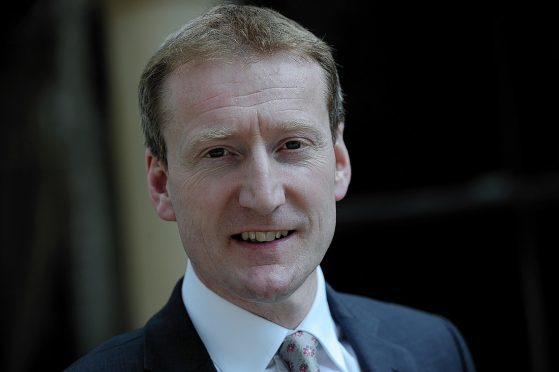NHS Shetland is facing a patient backlash to its decision to send sick people to Aberdeen for medical treatment on an overnight ferry rather than a short plane journey.
Shetland MSP Tavish Scott wants the policy reversed and will raise the issue in the Scottish Parliament today, saying he hopes First Minister Nicola Sturgeon will “take this issue seriously”.
The health board hopes to save £1 million from its present travel spending of £2.7 million by switching most patients to the 12-hour ferry from Lerwick to Aberdeen rather than flights lasting under an hour.
Exceptions will be made for patients including children, pregnant women in their third trimester and those being treated for cancer, along with those travelling farther afield than Aberdeen for appointments.
Patients will also have the option of paying for a plane ticket and claiming back a portion of the cost up to the value of a ferry fare from NHS Shetland.
Heather Summers, 53, was diagnosed with a heart condition as a child and travels down regularly to see a heart consultant and for treatment for joint problems.
She praises the treatment she receives from the NHS, but feels it is “disappointing they put something out like that without thinking the whole thing through.”
She added: “I feel the decision is affecting the most vulnerable folk in Shetland that’s needing the most help.”
Joyce Davies, from Skeld, often takes her daughter away for healthcare she can only access on the Scottish mainland. The longer journeys would see her “miss school to sit about in Aberdeen”.
She said many islanders “loathe” the lengthy ferry trip which is “awful if you are not unwell but if you are in pain it is even worse”.
“I go to a lot of appointments,” Mrs Davies said. “I would miss the support of and time with my family, which is much needed. A lot of people have carer responsibilities, cannot get that amount of time off work, may be self-employed and would lose income.”
She called on the health board to “reverse this awful decision now and hold a proper public consultation”.
Mr Scott said he had been contacted “by many Shetlanders concerned about how this change will affect them”.
NHS Shetland chairman Ian Kinniburgh said Mr Scott was “within his rights to seek to have the decision overturned” but it would “still leave us with the problem of trying to find an equivalent amount of savings from somewhere else within our clinical services”.
He said the health board “remain committed to making this work in a way that both safeguards the provision of clinical services for folk living in Shetland and at the same time minimises as far as we possibly can the disruption to patients”.
